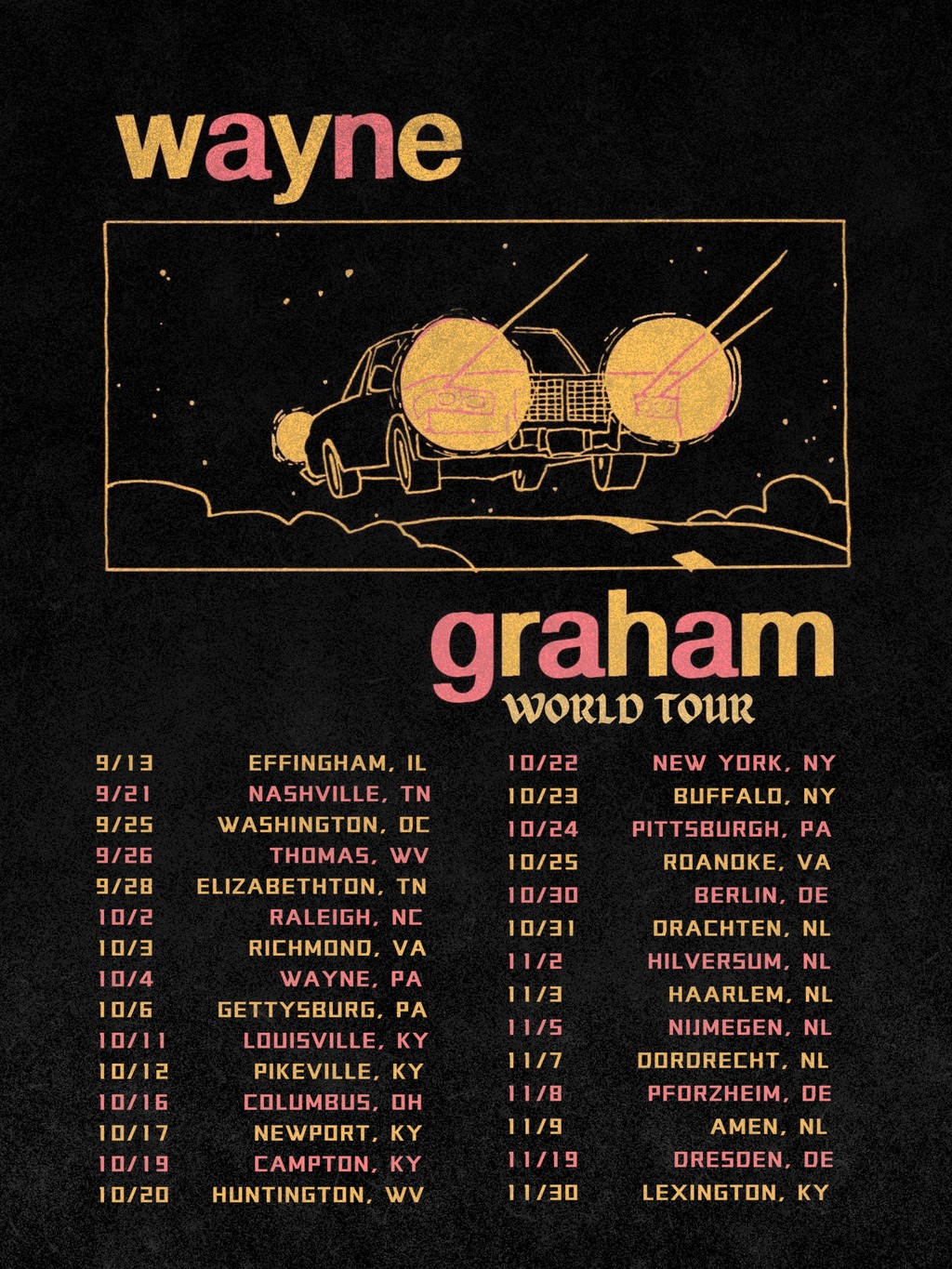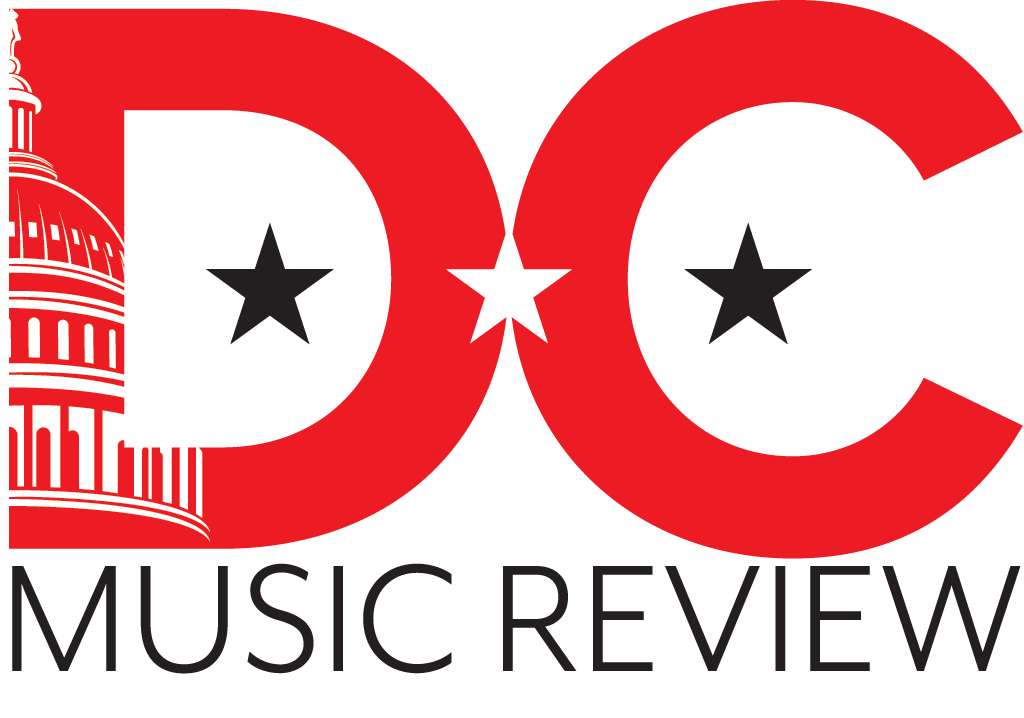Brothers Hayden and Kenny Miles from Whitesburg, Kentucky, are making (sound) waves in the indie/electronic Americana world. They shared some insight with DC Music Review on their latest album Bastion–released September 6th–ahead of their stop at the Pie Shop in Washington, DC, on September 25th. In addition to the two brothers, band members José Oreta and Germany-based Ludwig Bauer further elevate Wayne Graham the band’s already intentional and thoughtfully curated portfolio. Having already opened for Americana legends like Tommy Prine and Tyler Childers and rising sensations S.G. Goodman and 49 Winchester, playing the festival circuit including Kentucky’s own Rail Bird in Lexington, as well as touring internationally, Wayne Graham is the one to watch.
In our interview, the band discusses the relationship to their home amidst social and political chasms and how music has helped them broach those difficult conversations, even with loved ones. They also dive into their collaboration with instrumentalist Ludwig Bauer, how their creative process has evolved, and thoughts on where the future might take them.
Batya: Congratulations on your recent tour with fellow Kentuckians (Kentucks? Kentuckers?) Tyler Childers and SG Goodman! In his pandemic and protest-era album, Long Violent History, Childers aimed to dismantle and dissect a set of values common within the Appalachian region from which you all originate, and Bastion similarly sets out to explore the feeling of loss of home when that sameplace begins to conflict so deeply with your own core values and lifestyles. Does Bastion intentionally draw parallels to Childers’ album or is this sentiment growing among young people in and around the area do you think?
Wayne Graham: I don’t think we intended to draw parallels as much as join in the conversation. While there is plenty of racism and xenophobia in our region, it is a mistake to think our region doesn’t have a more complex story to tell. Our grandfathers [The band’s namesakes are after their grandfathers: Wayne and Graham] were coal miners and also staunch Democrats who were proud members of the UMWA [United Mine Workers of America]. Our parents' generation has swung the other way, and that’s where our frustration comes in. Those of us speaking to these issues now are not signaling to the outside world that we know what’s up, [but] we are telling our relatives we remember when our people stood for something.
Batya: You’ve said playing music together is a reason to hang out with each other and is a way to explore difficult ideas of identity and isolation that otherwise wouldn't be talked about. Have you found that your relationship has gotten stronger because of breaking down those walls? What would you say to people struggling to speak up in these conversations that Wayne Graham is working to initiate?
Wayne Graham (Kenny): The simple answer is yes, I feel closer to Hayden the more we can safely discuss whatever is on our minds. The same is true with every relationship. It’s easy to resist being truly vulnerable with someone because we expect judgement, but if judgement is off the table, there is a lot more room for connection.
Hayden: I often think Kenny and I feel we are the people struggling to speak up in most conversations, so our music feels like a way to say what’s on our minds.
Batya: Simply put, I want to know more about how you linked up with Ludwig Bauer. What an interesting feature of an already unique band. How do you feel your music has changed since teaming up with Bauer? And not to get ahead of ourselves (but totally trying to get ahead of ourselves), do you envision adding additional members from similar, or similarly different, backgrounds to further strengthen Wayne Graham’s eclectic and fluid identity?
Wayne Graham: Ludwig is a saint of a human being. Working with him never felt like a decision as much as an opportunity to invite a wizard in to sprinkle magic dust on everything. He has the purest intentions and we have learned that is a priceless quality to find in a collaborator. The only way I’d say it’s changed the way we work is sometimes we will stop short of trying a piano part or something, knowing we’d like to give Ludwig a whack at it first. It ends up being good for us to leave space sometimes, because it doesn’t always get filled in.
Batya: Your 2020 album 1% Juice tenderly grazes this idea with its reliance on strings in conjunction with your trademark electronic country funk sound, but would you ever try exploring a traditional roots album to pay homage to the place you’re from as the Yin to Bastion’s Yang?
Wayne Graham: While nothing is off the table, I can’t see us saying, “Let’s make a traditional roots album now.” Just because we don’t think of things in those terms. We feel compelled and try to act, and the fluid identity you noted above is a byproduct of that.
Bastion is the band’s eighth album in almost 15 years, proving that there is nowhere else to go but forward. Come check them out for a special intimate performance at the Pie Shop in Washington, DC, September 25th. (Ticket link can be found below.)

Article Photo Credit: Hunter Way / Impact Media
Listen
Listen
Listen
Have you tried TIDAL yet? They have some of the best streaming sound out there with multiple subscription plans including a free version in addition to HiDef, Family, and Student packages. Click here for more Information about available packages.
Wayne Graham
Don't see Bastion on the streaming platform of your choice? Check this link for a full list of streaming platforms.
Performance Details
Performance Details
Performance
Details
Pie Shop
$15
Additional Resources
Additional Resources
Additional
Resources
To learn more about Wayne Graham
Related Articles
Related Articles
Related Articles
